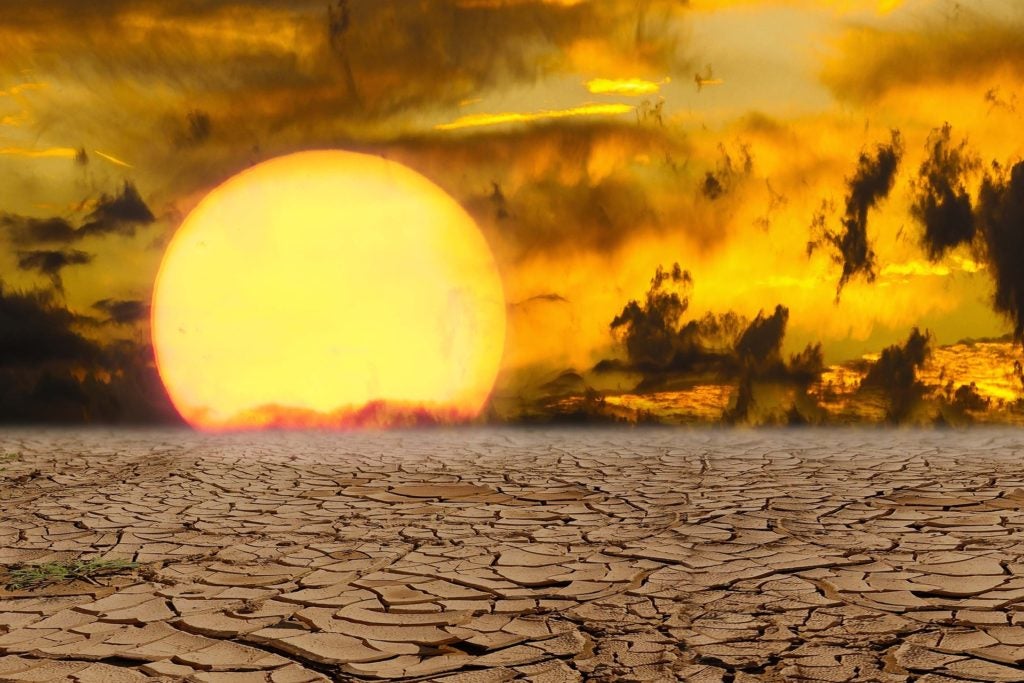Climate change is a dire threat and we should immediately pivot away from fossil fuels that are warming the planet. That’s the scientific advice in a recent landmark report by the world’s scientific authority on climate change, the Intergovernmental Panel on Climate Change (IPCC). The report details how humans have fueled climate change at an “unprecedented” pace and warns there’s limited time to avert sea level rise, extreme drought, rampant wildfires and more dangerous storms, among other calamities.
USC experts discuss the new report and how humanity will respond to climate change in the lead-up to the 26th United Nations Climate Conference, which will begin on Oct. 31, 2021.
Contact: Jenesse Miller, 213-810-8554 or jenessem@usc.edu
Climate report confirms we are “locked into a hotter future”
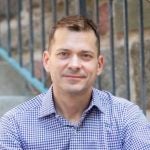 Joe Ãrvai is director of the Wrigley Institute for Environmental Studies and a professor of psychology at the USC Dornsife College of Letters, Arts and Sciences.
Joe Ãrvai is director of the Wrigley Institute for Environmental Studies and a professor of psychology at the USC Dornsife College of Letters, Arts and Sciences.
“This most recent report from the IPCC reminded us once again that climate change poses an existential risk to the environment we depend upon and to us no matter where on Earth we live,” Ãrvai said. “As expected, we also learned from this report that we’ve reached the point that we are now locked into a hotter future, one that will be punctuated by deadly heat waves, droughts, wildfire, floods, severe storms, disease, extinctions and the like.”
He added:
- The IPCC report didn’t include guidance about how to upgrade the capabilities of governments and businesses so that they can make better climate risk management decisions.
- We know we have a problem and there are options for solving it, like the kelp-to-biofuel project at the Wrigley Institute.
- But recognizing that we have a problem and having solutions at our fingertips to solve it doesn’t automatically lead to smart choices.
Contact: arvai@usc.edu
The evidence is clear: We don’t have the luxury of waiting to act on climate change
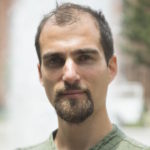 Julien Emile-Geay is an associate professor of Earth sciences at the USC Dornsife College of Letters, Arts and Sciences who is an expert in climate modeling.
Julien Emile-Geay is an associate professor of Earth sciences at the USC Dornsife College of Letters, Arts and Sciences who is an expert in climate modeling.
“The IPCC’s Sixth Assessment Report is its most definite yet, combining all available lines of evidence to reiterate, more unequivocally than ever, that humanity must stop burning carbon as soon as possible,” Emile-Geay said. “Warnings once issued in the future tense are now decidedly present. Will we listen this time? We no longer have the luxury of waiting.”
He added:
- Since James Hansen’s historic congressional testimony in 1988, the climate community has kept ringing the alarm bell that our consumption of fossil fuels is fundamentally at odds with the prosperous, peaceful future to which so many of us aspire.
- The message has been muddled by the fossil fuel industry and ignored by governments for decades.
- As of 2015, the warnings have been only half-heartedly acted upon.
- The climate crisis, like so many of the crises humanity confronts at the moment, can only be met by a true collaboration between our planet and the species we share it with, on a more equal basis.
Contact: julieneg@usc.edu
Equity must be “baked in” to climate solutions
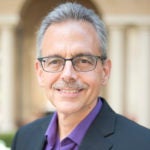 Manuel Pastor is a Distinguished Professor of sociology and American studies and ethnicity and director of the USC Equity Research Institute at the USC Dornsife College. He recently co-authored a report urging California to become net carbon negative by 2030.
Manuel Pastor is a Distinguished Professor of sociology and American studies and ethnicity and director of the USC Equity Research Institute at the USC Dornsife College. He recently co-authored a report urging California to become net carbon negative by 2030.
“Research shows that investing in clean energy greatly contributes to social equity. Clean energy investments create nearly twice as many jobs as the fossil fuel industry (even more in some cases) while improving air quality, especially for low-income communities of color,” Pastor said. “We’ve got the tools and the knowledge. We just need our elected officials to get the job done.”
He added:
- Mass transit together with policies to make electric vehicles more affordable both boost employment and reduce climate pollution.
- Justice-based environmental metrics such as CalEnviroScreen allow us to properly understand the social and economic impacts of accelerating the clean energy transition.
- Those metrics can ensure that equity is “baked into the clean energy economy, not just sprinkled on top.”
Contact: mpastor@dornsife.usc.edu
Report is a “code red for humanity”
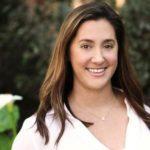 Shannon Gibson is an associate professor (teaching) of political science and international relations at the USC Dornsife College of Letters, Arts and Sciences.
Shannon Gibson is an associate professor (teaching) of political science and international relations at the USC Dornsife College of Letters, Arts and Sciences.
“The newest IPCC report has aptly been called a ‘code red for humanity.’ It’s a sharp signal to the world that countries must act now to make strong mitigation commitments at the upcoming United Nations climate negotiations,” Gibson said. “Sadly, we have wasted decades on negotiations. If we are to curb impending climate change, negotiators need to seriously heed the warnings and predictions of this newest report.”
She added:
- The report is the product of years of culling and synthesizing recently published scientific studies on climate change by hundreds of scientists and academics across the world.
- It highlights trends showing climate change is happening faster and in more unpredictable ways than we expected.
Contact: smgibson@usc.edu
Federal funds for energy, infrastructure must address climate
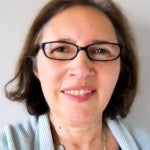 Hilda Blanco is project director of the Center for Sustainable Cities-METRANS Center at the USC Price School of Public Policy. She is an expert on climate change policy and urban planning.
Hilda Blanco is project director of the Center for Sustainable Cities-METRANS Center at the USC Price School of Public Policy. She is an expert on climate change policy and urban planning.
“President Biden’s bill [for infrastructure and clean energy] invests a lot of money; we haven’t seen anything like this in a long time. It would give society an opportunity to deal with issues of sustainability that will help as the climate continues to heat up,” Blanco said.
She added:
- Laws to address climate change must address disadvantaged populations, including rural communities that lose jobs as fossil fuel extraction declines.
- Redesigning the urban landscape for energy efficiency and resilience will be necessary to adapt to climate change.
Contact: hblanco@usc.edu
Reducing emissions will also improve urban air quality
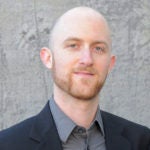 George Ban-Weiss is an associate professor and the David M. Wilson Early Career Chair in civil and environmental engineering at the USC Viterbi School of Engineering.
George Ban-Weiss is an associate professor and the David M. Wilson Early Career Chair in civil and environmental engineering at the USC Viterbi School of Engineering.
“The latest IPCC report provides the most up-to-date scientific assessment of global climate change. We are already experiencing the impacts of global climate change, such as increases in extreme heat. And city-dwellers like us Angelenos are exposed to extra warming due to the urban heat island effect,” Ban-Weiss said. “The beauty of efforts to reduce greenhouse gas emissions is that they generally also improve urban air quality, reducing human exposures and thus deleterious health consequences.”
He added:
- The report reminds us that we need global emissions of greenhouse gases to promptly reach near-zero levels to avoid changes to our climate that would cause numerous impacts, ranging from undesirable to potentially disastrous for some regions.
- As has been the case for previous IPCC reports, this latest report is also an excellent educational resource and will be used in his classes at USC.
Contact: banweiss@usc.edu
Capitalism can help mitigate climate change
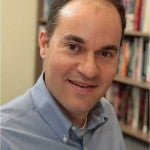 Matthew Kahn is a Provost Professor of economics at the USC Dornsife College of Letters, Arts and Sciences and the author of Adapting to Climate Change.
Matthew Kahn is a Provost Professor of economics at the USC Dornsife College of Letters, Arts and Sciences and the author of Adapting to Climate Change.
“This may not be a popular position, but capitalism will help us adapt and take more of these punches thrown at us by Mother Nature. We will be better able to mitigate climate change if more of the emerging middle class around the world achieves its material desires but also embraces the environmental agenda. This requires a delicate balancing act,” Kahn said. “How do we design the rules of the game so people living a fossil fuel-intensive life have a stake in the green economy and don’t view the low-carbon agenda as elitist and making them poor?”
He added:
- The middle class in developing nations like Mexico, Egypt and India desires material goods that Americans take for granted including cell phones, computers, cars and refrigerators.
- An important question is how to incentivize developing countries to use less carbon while attaining those material goods.
- For example, as India considers building more coal-fired power plants, the country could instead rely on solar panels and wind turbines if it wasn’t required to pay intellectual property fees on that green technology.
Contact: kahnme@usc.edu
Building sustainable coastline is best defense for sea level rise
 Melodie Grubbs is a science, research and policy specialist at USC Sea Grant based at USC Dornsife. She is an expert in mitigating the coastal impacts of sea level rise.
Melodie Grubbs is a science, research and policy specialist at USC Sea Grant based at USC Dornsife. She is an expert in mitigating the coastal impacts of sea level rise.
“We need to create a sustainable coastline that can adapt to sea level rise due to climate change. The good news is people can see the impacts now, so the mentality is changing, but time is ticking and we need to scale up solutions and apply them to wider swaths of the coast,” Grubbs said.
She added:
- Sea level will rise 1 to 2 feet in Southern California within 30 years.
- Absent action, the L.A. coast will likely lose half its beaches by the end of the century.
- We need to prepare for impacts to roads, buildings, sewage plants and critical infrastructure.
- Mitigation will include nature-based solutions, like building sand dunes and wetlands to absorb the ocean’s energy.
Contact: mgrubbs@usc.edu
Wildfire history tells a story of catastrophe and rapid change
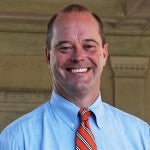 Bill Deverell is a professor and historian at the USC Dornsife College of Letters, Arts and Sciences. He’s an expert of California history and leads “The West on Fire” program at USC.
Bill Deverell is a professor and historian at the USC Dornsife College of Letters, Arts and Sciences. He’s an expert of California history and leads “The West on Fire” program at USC.
“Once again, we’re seeing valid, important, and increasingly urgent statements about the climate change predicament the entire planet faces. The wildfire history of the past few decades, up and down the Pacific Slope and deep into the interior of the Great Basin and Rocky Mountains, tells a story of catastrophe and rapid change,” Deverell said. “We can’t know the future, but we can and must use the past as a guide. The past tells us that this is a new moment, likely a new normal, and we must continue all efforts to work on innovative ways by which to address change.”
He added:
- In the case of wildfire, we must learn to live with fire better, smarter and safer.
- Rebuilding homes in fire-prone areas needs reevaluating for climate resiliency.
- Electrical transmission lines traversing miles of brush and forest are at risk due to global warming.
- More drought, fires and development risks spreading fires from the urban-wildland interface into suburban and urban neighborhoods.
Contact: deverell@usc.edu
Image via Pixabay

